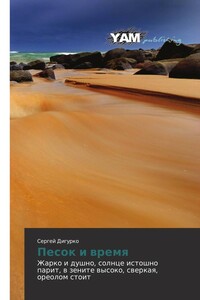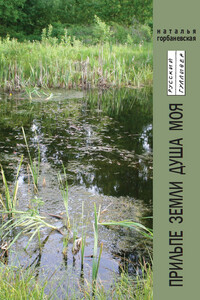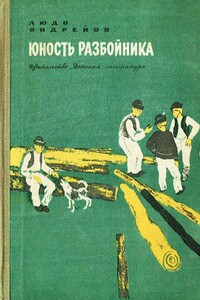36 Arguments for the Existence of God - [25]
Wandering between two worlds, one dead,
The other powerless to be born,
With nowhere yet to rest my head,
Like these, on earth I wait forlorn.
Cass’s mother did read The Perversity of Persuasion, though whether she ever explained it to his father Cass didn’t know.
“What do you think?” Cass had asked her, as she sat beside him on the deck, midway into the book.
“He’s quite oracular,” she had answered.
Cass had nodded and then smiled, pleased with her answer.
After a few more minutes of reading had passed for both of them, he looked up and asked, “When you say ‘oracular,’ do you mean that in a good way or a bad way?”
She had yielded one of her more inscrutable smiles.
“I couldn’t really say. I guess you’ll find out for yourself when you get to Frankfurter.”
Jonas Elijah Klapper’s sole course offering during this first year at Frankfurter was to be the two-semestered “The Sublime, the Subliminal, and the Self,” a seminar that had a pre-registration of twenty-three students, which was high for a graduate seminar. There were the professor’s own graduate students, now down to seven. The departed five had ultimately decided, after passing through Kübler-Ross’s five stages of grief, not to move to Massachusetts, which Klapper had made a non-negotiable condition for their continuing to be supervised by him. “The Sublime, the Subliminal, and the Self” also had six graduate students from Frankfurter’s English Department, another six from Religion, one from Philosophy, and three undergraduates who had managed to garner the elusive permission of the instructor.
The three were all, Cass couldn’t help noticing, extremely comely girls, who entered the room that first day in a clutch of bosomy frolicsome-ness. But even they soon fell into the nervous silence that was de rigueur among the professor’s chosen students.
The tone was set by Gideon Raven, whose brilliance and intensity were disguised within the mien of a hyper-alert baby. His head was round, his face-especially in relation to his fleshless body-full. His eyes were circular as well, their shape enforcing an impression of innocence, no matter the conflagrations raging behind them. It was the gaunt jitteriness-the fingers gnawed to the quick, the dissent pooling in his philtrum-that gave him away. Although Gideon had been studying with Jonas Elijah Klapper for an apostolic twelve years, and was teaching his own courses at Frankfurter this semester on the metaphysical poets, still, here he was in attendance, just as he had attended every one of the professor’s Columbia classes, graduate and undergraduate, since becoming his student.
Jonas Elijah Klapper shuffled in and settled his heft into the chair with a soft sigh, while plopping his bulging satchel onto the gleaming oval of the table. Gathering himself together, he proceeded to go round the table, starting from his immediate left, to stare each of the twenty-three students full in the face, an excruciating exercise for the subjects. One girl, Asian, got up in the middle of her turn and wordlessly left. The professor, taking no notice, had simply let his eyes proceed to the next.
This first item of business concluded, Jonas Elijah Klapper cleared his throat and began to recite, from memory, in his beautiful Anglicized voice, Matthew Arnold’s “Dover Beach,” which had been assigned for this first meeting.
The sea is calm to-night.
The tide is full, the moon lies fair
Upon the straits;-on the French coast the light
Gleams and is gone; the cliffs of England stand,
Glimmering and vast, out in the tranquil bay.
Professor Klapper’s voice, his smile, his entire being, embodied the becalmed stasis of the first stanza.
Come to the window, sweet is the night-air!
Klapper was personifying youthful vigor, a reckless bounding into hope. His shoulders even gave a bit of a jump.
Only, from the long line of spray
Where the sea meets the moon-blanch’d land…
An ominous warning was being sounded, the slightest shiver of the sinister disturbing the surface of sonority.
Listen! You hear the grating roar
Of pebbles which the waves draw back, and fling,
At their return, up the high strand,
Begin, and cease, and then again begin,
With tremulous cadence slow, and bring
The eternal note of sadness in.
And the promise of joy that had flickered only a moment before in Klapper’s voice and playful shoulders, withdrew itself.
Sophocles long ago
Heard it on the Aegean, and it brought
Into his mind the turbid ebb and flow
Of human misery; we
Find also in the sound a thought,
Hearing it by this distant northern sea.
The Sea of Faith
He whispered in that charged hush that could rise to the rafters of a crowded undergraduate lecture hall, and had no difficulty now projecting to the farthest reaches of the seminar room.
Was once, too, at the full, and round earth’s shore
Lay like the folds of a bright girdle furl’d.
But now I only hear

Жизнь – это чудесное ожерелье, а каждая встреча – жемчужина на ней. Мы встречаемся и влюбляемся, мы расстаемся и воссоединяемся, мы разделяем друг с другом радости и горести, наши сердца разбиваются… Красная записная книжка – верная спутница 96-летней Дорис с 1928 года, с тех пор, как отец подарил ей ее на десятилетие. Эта книжка – ее сокровищница, она хранит память обо всех удивительных встречах в ее жизни. Здесь – ее единственное богатство, ее воспоминания. Но нет ли в ней чего-то такого, что может обогатить и других?..

У Иззи О`Нилл нет родителей, дорогой одежды, денег на колледж… Зато есть любимая бабушка, двое лучших друзей и непревзойденное чувство юмора. Что еще нужно для счастья? Стать сценаристом! Отправляя свою работу на конкурс молодых писателей, Иззи даже не догадывается, что в скором времени одноклассники превратят ее жизнь в плохое шоу из-за откровенных фотографий, которые сначала разлетятся по школе, а потом и по всей стране. Иззи не сдается: юмор выручает и здесь. Но с каждым днем ситуация усугубляется.

В пустыне ветер своим дыханием создает барханы и дюны из песка, которые за год продвигаются на несколько метров. Остановить их может только дождь. Там, где его влага орошает поверхность, начинает пробиваться на свет растительность, замедляя губительное продвижение песка. Человека по жизни ведет судьба, вера и Любовь, толкая его, то сильно, то бережно, в спину, в плечи, в лицо… Остановить этот извилистый путь под силу только времени… Все события в истории повторяются, и у каждой цивилизации есть свой круг жизни, у которого есть свое начало и свой конец.

С тех пор, как автор стихов вышел на демонстрацию против вторжения советских войск в Чехословакию, противопоставив свою совесть титанической громаде тоталитарной системы, утверждая ценности, большие, чем собственная жизнь, ее поэзия приобрела особый статус. Каждая строка поэта обеспечена «золотым запасом» неповторимой судьбы. В своей новой книге, объединившей лучшее из написанного в период с 1956 по 2010-й гг., Наталья Горбаневская, лауреат «Русской Премии» по итогам 2010 года, демонстрирует блестящие образцы русской духовной лирики, ориентированной на два течения времени – земное, повседневное, и большое – небесное, движущееся по вечным законам правды и любви и переходящее в Вечность.

События, описанные в этой книге, произошли на той странной неделе, которую Мэй, жительница небольшого ирландского города, никогда не забудет. Мэй отлично управляется с садовыми растениями, но чувствует себя потерянной, когда ей нужно общаться с новыми людьми. Череда случайностей приводит к тому, что она должна навести порядок в саду, принадлежащем мужчине, которого она никогда не видела, но, изучив инструменты на его участке, уверилась, что он талантливый резчик по дереву. Одновременно она ловит себя на том, что глупо и безоглядно влюбилась в местного почтальона, чьего имени даже не знает, а в городе начинают происходить происшествия, по которым впору снимать детективный сериал.

«Юность разбойника», повесть словацкого писателя Людо Ондрейова, — одно из классических произведений чехословацкой литературы. Повесть, вышедшая около 30 лет назад, до сих пор пользуется неизменной любовью и переведена на многие языки. Маленький герой повести Ергуш Лапин — сын «разбойника», словацкого крестьянина, скрывавшегося в горах и боровшегося против произвола и несправедливости. Чуткий, отзывчивый, очень правдивый мальчик, Ергуш, так же как и его отец, болезненно реагирует на всяческую несправедливость.У Ергуша Лапина впечатлительная поэтическая душа.